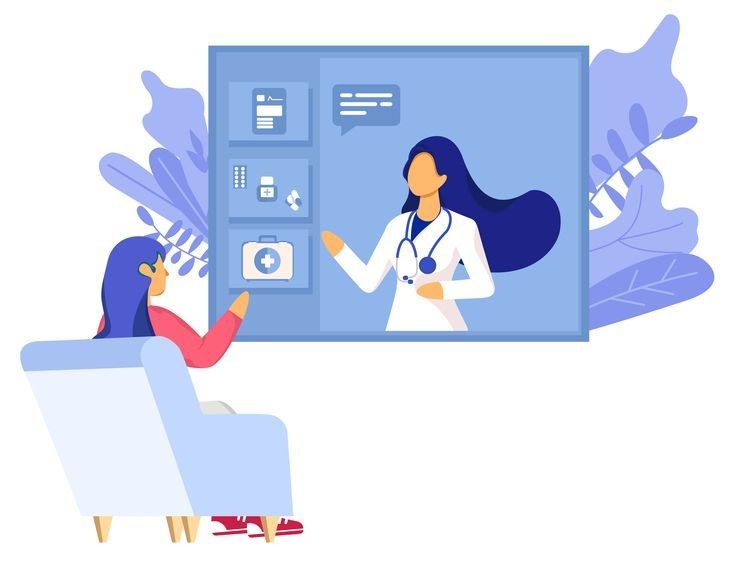

KATHMANDU: Health is our most valuable asset, and one of the best ways to stay proactive about it is through regular health check-ups.
This article explores the importance of health check-ups, factors that determine how frequently we should visit a doctor, and the types of tests and screenings to be aware of.
What is a health check-up?
A health check-up is a series of medical tests and screenings designed to assess your overall health and identify potential health issues early. These check-ups typically involve the following:
General Adult Medical Check-Up Routine:
Ages 19-21: Once every 2-3 years
Ages 22-64: Once every 1-3 years
Over 65: Once a year
Recommendations for Everyone:
If your doctor assures you that you’re in good health, take preventive steps to maintain it. Here’s a simple guideline you can follow:
Blood Pressure: Get checked every 1-2 years.
Vaccinations: Stay up-to-date with vaccines:
Diphtheria, Tetanus, or Pertussis booster every 10 years.
Chickenpox vaccination if you’ve never had it.
Mumps, Rubella, or Measles vaccination if you’ve never had them.
Hepatitis A or B shots if you’re at risk.
Health Check-Ups After the Age of 40:
Cholesterol Screenings: Every 3-5 years.
Colorectal Cancer Screening: Fecal occult blood test every year, and a colonoscopy every 10 years.
Health check-ups after the age of 55:
Lung Cancer Screenings: If you’re a smoker or quit less than 15 years ago, regular lung cancer screenings are recommended.
Yearly Check-Ups: After age 60, annual health check-ups are crucial.
Pneumococcal Vaccination: After age 65.
If you’re feeling anxious, depressed, or have any health concerns, make sure to set an appointment with your doctor. Additionally, if you’re planning to lose weight, it’s wise to get a full medical check-up before committing to a new diet or exercise plan.
Benefits of Regular Check-ups
Regular check-ups with your healthcare provider can offer numerous benefits, including:
Monitoring Existing Health Issues: Regular check-ups help manage ongoing health conditions and prevent complications.
Early Detection of Life-Threatening Issues: Catching health problems early allows for more effective treatment.
Cost Savings: Early treatment of health conditions can reduce healthcare costs.
Maintaining an Open Relationship with Your Physician: Building trust with your doctor helps you manage your health more effectively.
Staying Updated on Vaccinations and Screenings: Keep up-to-date with necessary tests and vaccines.
Learning Healthy Habits: Regular check-ups help you learn new ways to live a longer, healthier life.
What should be covered in a routine medical check-up?
During your annual check-up, you’ll need to provide your medical history, assess your current health, and undergo necessary screenings. Both men and women should review and update the following:
Family History
Medical History
Medication List and Allergies
Vaccination and Screening Test History
Additionally, men and women are generally screened for:
Body Weight/Obesity (based on Body Mass Index)
High Blood Pressure
Type 2 Diabetes
Colorectal Cancer (starting at age 50)
HIV Screening
Hepatitis C
Alcohol and Drug Misuse
Depression
Lung Cancer
Guidelines for Women:
In addition to general screenings, women require some additional tests, such as breast and pelvic screenings.
Women Aged 18-29:
Intimate Partner Violence Screening for women of childbearing age.
Pap Smear and Cervical Cancer Test: Every 3 years.
HPV Vaccination: Make sure you get vaccinated.
Women Aged 30-49:
Mammograms: Consult your doctor about whether you should begin mammograms.
Pap Smear: Every 5 years.
Cholesterol Screening: Starting at age 45.
Women Aged 50 and Above:
Yearly Mammograms: Until age 75.
Pap Smear: Every 4-5 years until age 65 or 70.
Osteoporosis Screening: Starting at age 65.
Bone Density Test (DEXA Scan): After age 50.
Remember, the doctor may recommend a different screening schedule after menopause or a hysterectomy.
Guidelines for men:
In addition to general screenings, men need a few additional tests:
Prostate Exam: Starting at age 50.
Abdominal Aortic Aneurysm Screening: For men aged 65-75 with a history of smoking.
Cholesterol Screening: Starting at age 35.
Men aged 50 and above:
Bone Density Test (DEXA Scan).
Family History: Consider screening for prostate cancer based on your family history.
Abdominal Aortic Aneurysm Screening: After age 65, if you have a history of smoking or are currently a smoker, get an ultrasound to screen for this condition.